This is a co-design project, aiming to understand health care experiences of sexual minority community. I collaborate with a group of graduate students from the departments of business, engineering and design. It was a great research project and collaborative experience.
Research Objectives
The research objectives of our team’s co-design process related to sexual minority health disparities include the following main objectives along with sub-category goals and dimensions for action:
Developing an increased understanding of the health care experiences (past, present, future) of members of the LGBTQ (sexual minority) community.
Explore relationship to health care community (physical and mental)
Explore health education experiences and commonly accessed resources
Comparing supportive service professionals and user experiences in accessing health care
Compare on dimensions of perception of:
physical materials, resources and settings/facilities (tech ecosystem of services)
social and psychological networks of support
Identify opportunities that can be acted upon to improve future experiences
Utilize persona and scenario development
Consider service design prototypes
Project Background
The sexual minority (LGBT) population, is more prone to anxiety, depression and substance abuse due to gay-related victimization compared to heterosexuals. (Burton, Marshal et al, 2014, p.1)
LGBT people face personal barriers while accessing health care, this is because of attitudes, beliefs, and behaviors of individuals within the health care system from both providers and patients. (Institute of Medicine, 2011, p.62)
Medical schools teach very little about sexuality in general and little or nothing about the unique aspects of lesbian, gay, and bisexual health (Makadon, 2006; Tesar and Rovi, 1998; Wallick et al., 1993)
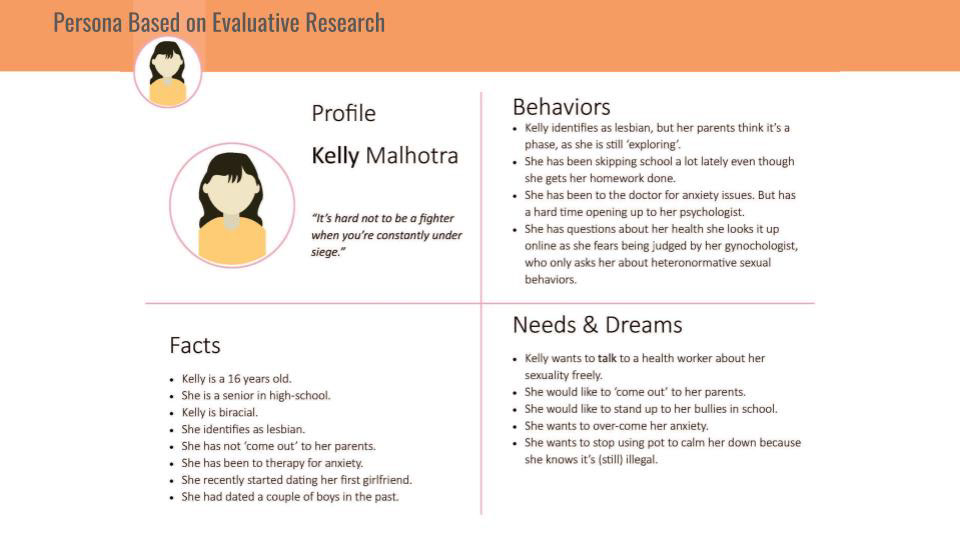
Persona development: We'll develop a persona based on the collected data from participants, on behaviors, facts, needs and dreams

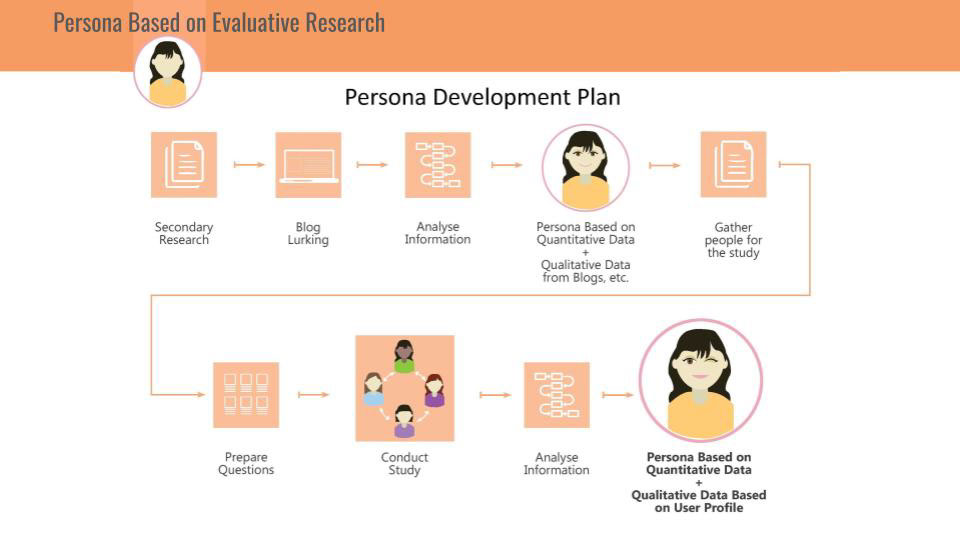
Diagram shows our research process from literature review to data analysis
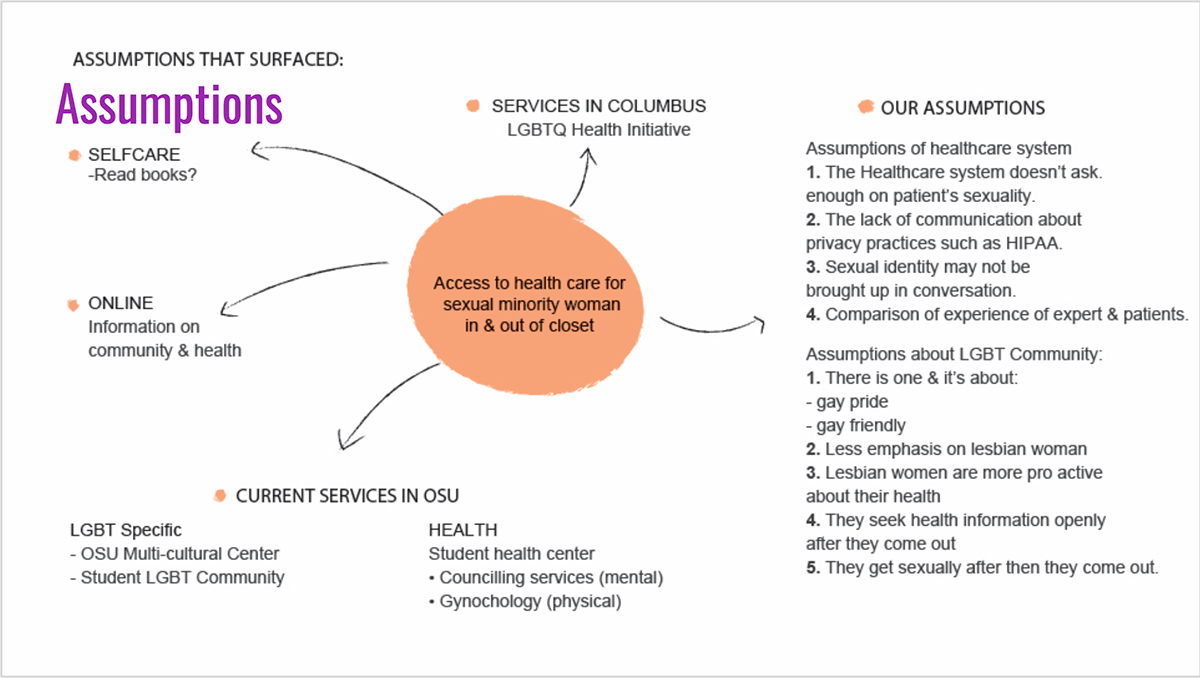
We listed our assumptions about the health care experience before starting the research.
Resources:
Participants & Other Stakeholders:
Initial Participants:
Women who identify as lesbian
Ages 18-25
In Columbus area / OSU campus
Women who identify as lesbian
Ages 18-25
In Columbus area / OSU campus
But due to time constraints we decided to open up the study to:
Everyone who identifies in the LGBT community.
All ages
In Columbus area/OSU campus
Stakeholders:
City of Columbus
Columbus Health Institutions
LBGTQ Health Initiative
OSU Student Health Center
Health care providers
Overview of Process
Goals:
Develop personas based on secondary research, community member workshop participants, and expert workshop participants
Examine differences between each persona both quantitatively and qualitatively
Analyze differences and attempt to understand why discrepancies exist
Based on the personas developed, formulate recommendations for one service/product/educational tool to improve healthcare and health literacy for sexual minority women
Steps
Planning: Identify what type of research was possible given the constraints of the class.
Survey: To identify the participant’s past and present health experience, and get them to think about the ‘ideal’ health experience.
Recruitment: One of the most challenging aspects of the project.
Workshop: Where participants are asked to make a persona of their health experiences. Co-design an ideal health experience as a group.Survey
We asked for questions to elicit qualitative information based on their past and present experience or of someone they know, with regards to:
- Gender and Sexual Identity
- Their ‘Coming out’ Experience, including age and who they told and how it went
- Their experiences with access to health information and healthcare providers
Any suggestions they may have to improve the LGBT health experience
Secondary Purpose: Homework for the workshop participantsWorkshop
We held an hour long workshop and there were four main parts:
1. Introduction and explanation of project
2. Individual persona development
3. Individual persona presentations
4. Ideal healthcare experience activity
Analysis Process
Survey:
Sex of all participants:
12 males, 5 females,
1 genderqueer femme
Mean age of coming out: 18 years
Age range of coming out:
“Was never in” to 22 years
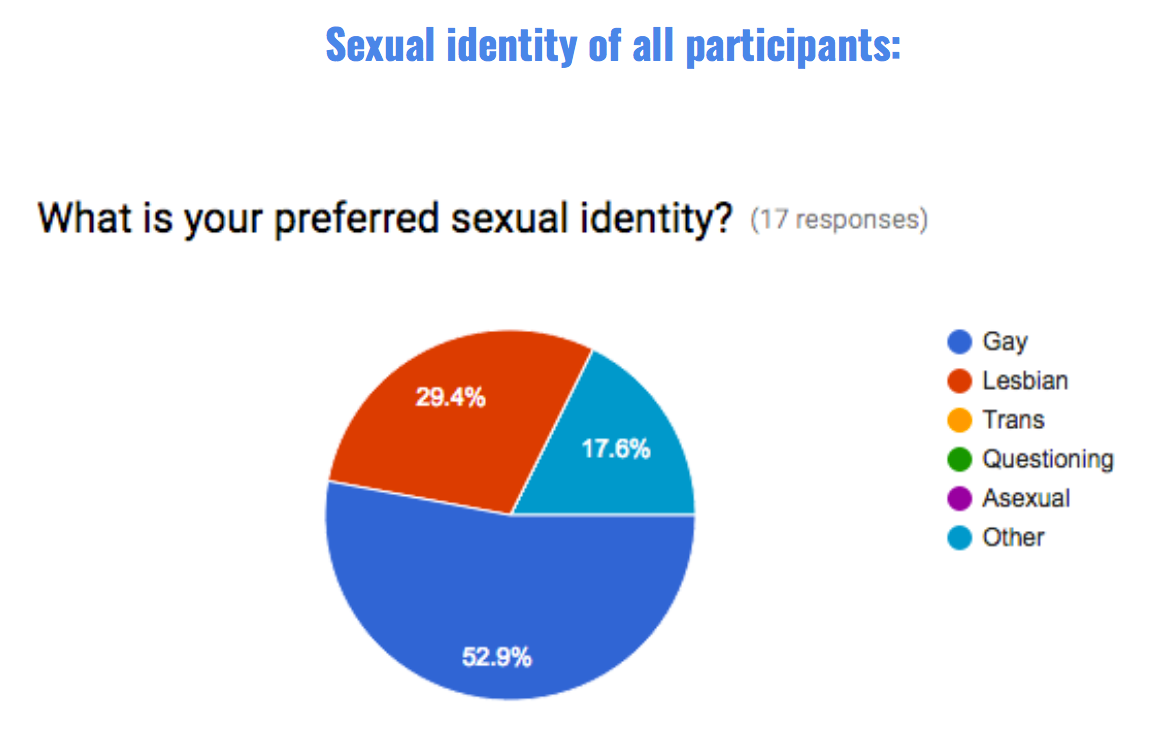
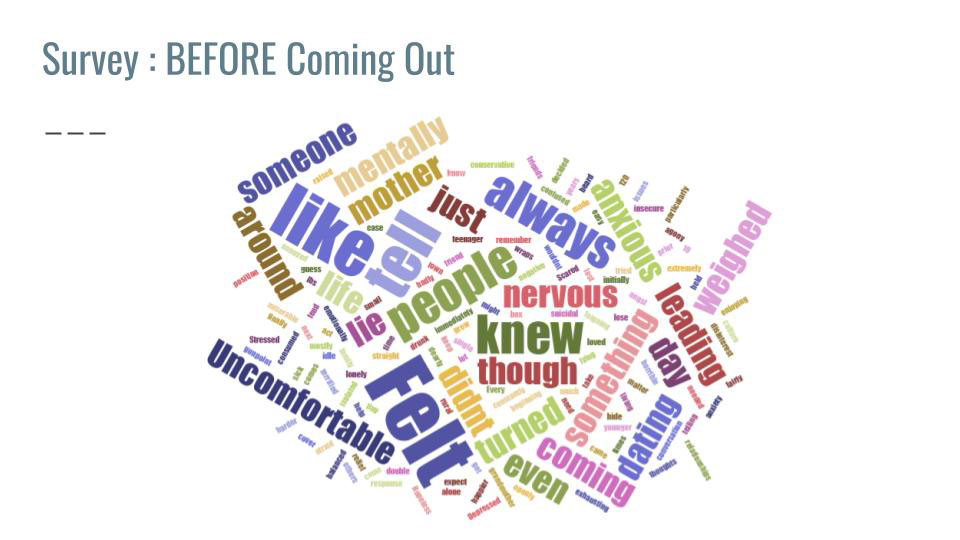

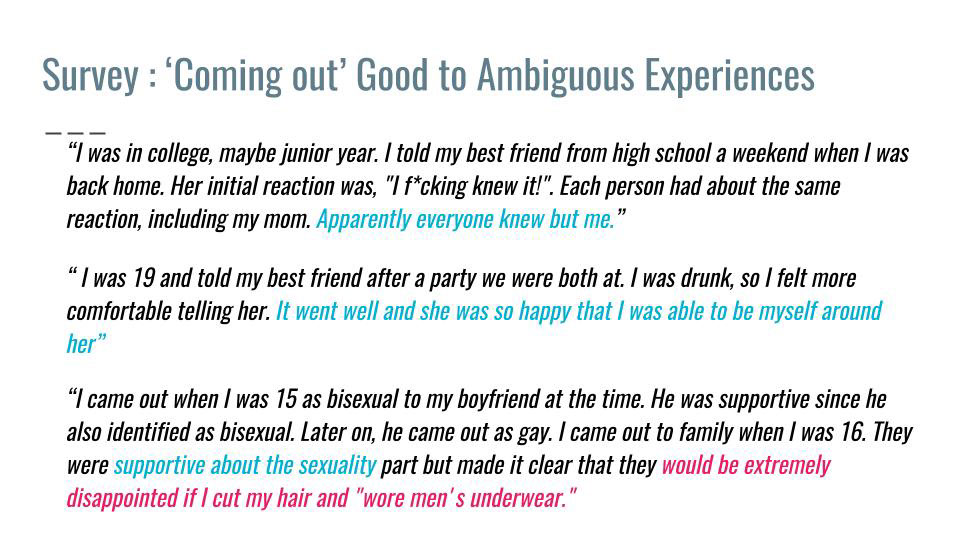
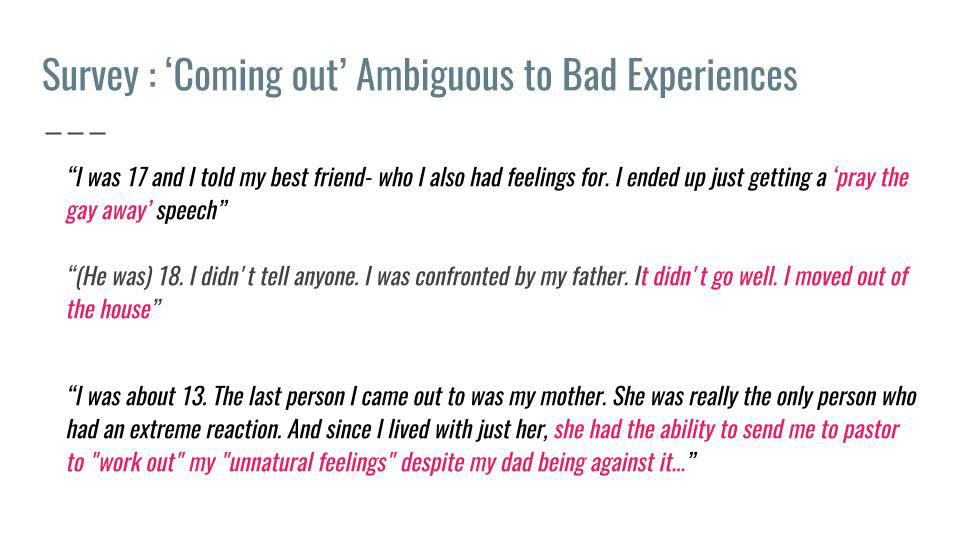


Survey on after coming out experiences
Analysis Process




Persona sheets created by our participants (members of LQBTQ community)
Persona Profile 1


Cut images for the persona profile:
A “scale” masculinity and femininity, grappling with one’s sexuality versus maintaining family relationships.
Dilemma LGBT people face in terms of self expression and maintaining the home environment.
Before Coming Out: There’s a curtain expressing feeling of living in shadows.
After Coming Out: Creates a new family with support that allows you to become stronger and make wiser choices.
Feels home life they had is split there’s a potential of thinking about health in a different way (PreP).
Health Status of Participant 1


Drew a big ‘HIV’ but left the ‘H’ unfilled, which represents the human aspect is removed because he is gay.
Does not feel self-worth and feels dehumanized.
Does not feel self-worth and feels dehumanized.
Condoms ? represent that phase of life where they ‘define love by 20 minutes of pleasure’ as a false sense of family and support but ends up putting himself in compromising positions - ie. deciding whether or not to use condoms.
Health Habits - Participant 2
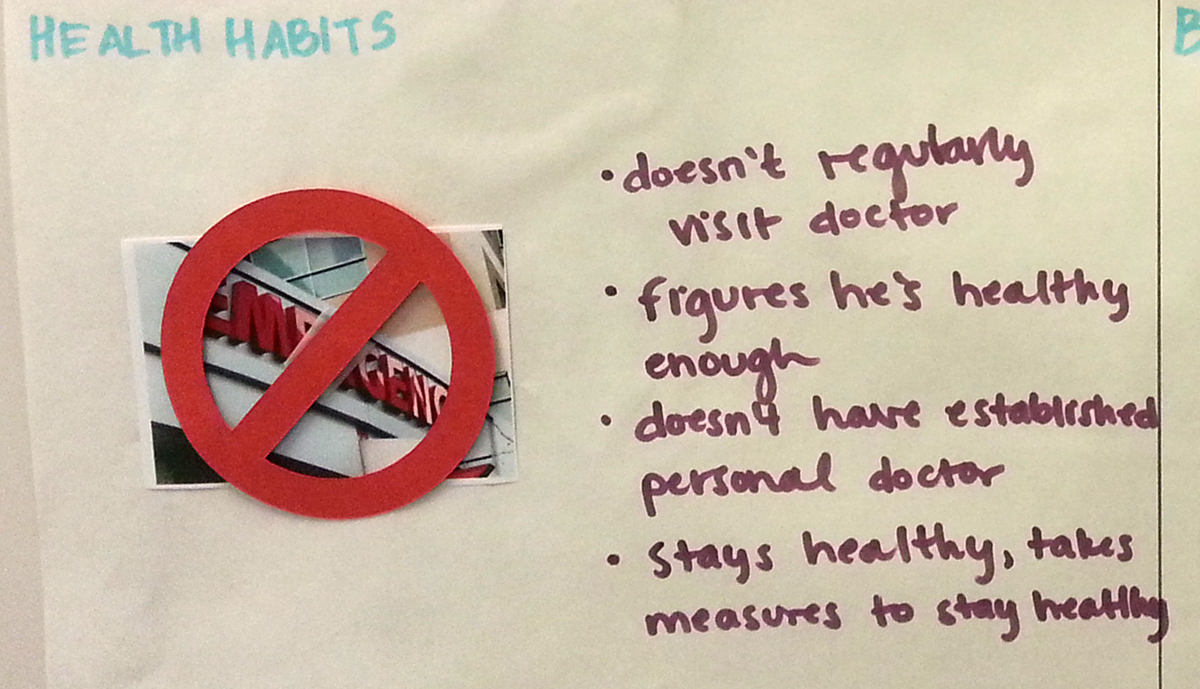
Does not have an established personal doctor & doesn't go for regular check ups.
It’s always an uncomfortable experience talking to the Doctor about sexual history.
Does not correct the doctor if they’re using feminine pronouns to describe his sexual partner as it’s assumed he’s straight.
He has to speak up to correct the doctor.
Coming Out - Participant 2

Before Coming Out: Confused, depressed, uncomfortable, homophobic (trying to convince themselves that if they hate homsexuality enough they can avoid it)
it was more a method of escaping.
After Coming Out: Confident, better able to understand and be comfortable with himself.

Persona Development




Outcomes: Process & Project
Participant’s opinion on the Healthcare system:
All 3 talked about the doctor’s needing more training in LGBT topics as they have heteronormative assumptions
They did acknowledge that our society has come a long way. (Unlike the experience of the older participant)
They said that this is a continuous process of improvement.
Hard to find network of “gay-friendly”/ LGBTQ competent doctor
Ideal Healthcare Experience of Participants
Filling out a quick checklist form:
Are you sexually active? M/F or both? Have you been sexually assaulted? Multiple partners or one? What forms of protection used, etc.
The doctor just gets it so doesn’t operate off assumptions.
Gay-friendly doctor network or more intensive training doctors could take for LGBTQ issues.
Gay-friendly doctor network or more intensive training doctors could take for LGBTQ issues.


What was learned
Most of the learning about design research occurred during the workshop
Material selection and placement are very important
Participants focused on paper shapes while ignoring keywords
Faces meant for personas were used to convey complex themes and ideas
Participants tended to split the persona, health status, health habits into before and after coming out
Vague is good, but too vague is bad. The ideal LGBT Health experience was probably too vast and the participants felt lost. We considered a revision to record common themes from personas developed to aid in this exercise.
In hindsight, we can look at the common themes when they are presenting their personas and, based on that, focus in on one or two specific areas. We can help guide the group session by writing the theme/s down on a post-it note and have them concentrate on one area of the healthcare system.
Managing participants from different age groups/demographics can be difficult.
One participant was significantly older than the others and acted like a parental figure
We need to establish techniques about capturing important dialogue, but also steering the conversation back on track.
We need to establish techniques about capturing important dialogue, but also steering the conversation back on track.
Team Members & Contributions
Ece Karaca, MFA, Design Research, The Ohio State University
Data Analysis, Media Documentation (photo, video, etc.), Workshop Toolkit Development
Joey McEnery, MS, Mechanical Engineering, The Ohio State University
Participant Recruitment, Workshop Co-Facilitator, Workshop Toolkit Development
Erika Meschkat, MBA, Social Enterprises, The Ohio State University
Lead Workshop Facilitator, Workshop Toolkit Development, Research on Local Efforts/Stakeholders
Trisha Shah, MFA, Design Research, The Ohio State University
Research for Topic Development, Persona Method Development, Data Analysis, Workshop Toolkit Development